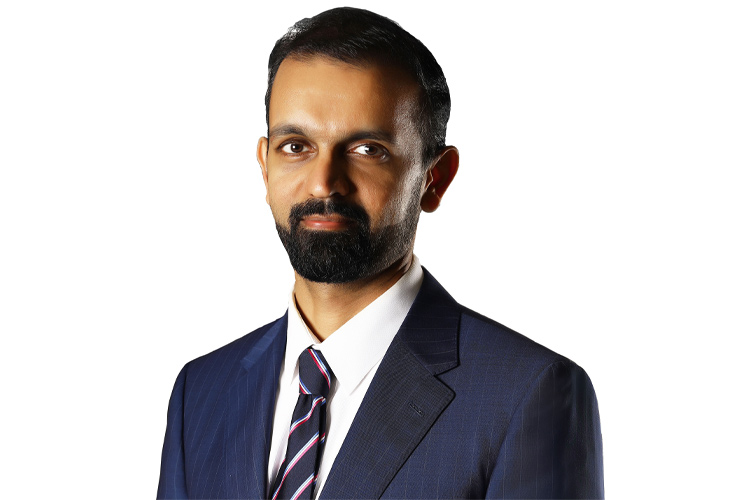

HP Aengaar, CEO, Provis, gives an insight into how PropTech has been a catalyst for the transformation of business cultures & activities.
October 17, 2022 | Deepa Natarajan Lobo | UAE | PropTech

All sectors, big or small, have been greatly influenced by technology, and at many times, completely transformed, and the built industry is no different. The real estate sector is undergoing digital transformation at unmatched levels, serving as a catalyst for growth and in fact as a base for the real estate services sector to realise its organisational goals.
A company that has quite literally imbibed technology within its DNA is Provis. Its strategy is driven by the adoption and application of innovation & technology. Talking to REM Times regarding how PropTech has been a catalyst for the transformation of business cultures and activities, is HP Aengaar, CEO at Provis.
PropTech, he says, has enabled Provis to reduce operating expenses, add value to the services they provide, make the communities happier, and preserve the environment by lowering the carbon footprint and natural resource consumption.
With more and more companies realising the critical and inseparable need for technology-enabled innovations, HP Aengaar says that he is witnessing Proptech entrepreneurs and businesses accelerate their investments and bring their solutions to market at an unprecedented pace.
Excerpts from the interview:
Given that the CRE (Commercial Real Estate) as an industry has been slow to adopt new technology, have you encountered any push-back from the clients?
When commercial real estate tenant or owner realises that technology can help them address their business needs, they see the value and begin to understand its importance, especially in light of the post-pandemic paradigm shift we are witnessing today from being real estate centric to being a lot more human-centric.
For example, technology can assist commercial real estate clients in monitoring and managing the flow of people within their assets, as well as identifying which parts of their office space are being used productively and which are not. Technology can even help monitor and manage stress levels. Thermal sensors can tell you whether someone in the room is stressed or relaxed. Monitoring everything from air quality to stress levels to productivity provides commercial tenants with a wealth of data that they can use to ensure optimum performance, employee happiness, and overall improved customer experiences. The list of human-centric benefits that technology can provide is seemingly endless. Companies can get a real-time read on how their employees are feeling, and this is the type of technology that is truly human-centric.
So, yes, while there is pushback, we believe it is due to a lack of awareness. Customers in commercial real estate will undoubtedly begin integrating and adopting technologies that suit their work environment once they realise that the right technology can improve their organisation's ability to better prepare for the future.
Today, everyone talks about achieving long-term environmental and economic sustainability. How does Provis help clients achieve these enhanced visions?
Sustainability is widely acknowledged as one of the most important pillars of business operations and long-term success. This has prompted companies to implement various types of programmes and initiatives that help reduce their overall environmental impact and contribute towards realising environmental, social, and governance (ESG) goals. Provis' corporate sustainability strategy has been developed in line with the UN Sustainability Development Goals (UN SDGs) and is at the core of its business strategy. We make sure our sustainability framework is cascaded across our company, partners, and communities under our management.
Our sustainability agenda is translated into tangible benefits via technology-powered innovations coupled with creative community and resident engagement programmes. For example, we introduced several advance customer relationship management tools, the Provis App and Portal, and our operational App, Provis Connect. Additionally, we have adopted a cloud-based Building Management System which assists in optimising service delivery, streamlining maintenance management, and improving customer experiences. These innovations have also assisted us in lowering energy and utility costs, as well as our carbon footprint.
By implementing these practices, adopting new technology, and retrofitting our communities, we are creating a more efficient, greener and sustainable world for current and future generations. If we look at this year as an example, our various high-impact solutions and sustainability-centred modernisation programmes resulted in AED 2.4 million in energy and utility savings, avoided over 5,000 tons of CO2, and conserved over 4 million kWh of total energy, enough to power nearly 600 rural homes for six months. As we look to the future, we are aiming to reduce our communities’ overall energy consumption by 5% year on year in line with the UAE Net-Zero by 2050 strategic initiative.
What according to you is next in PropTech?
The widespread adoption of Proptech has continued to alter and improve business practices while assisting the industry in overcoming numerous challenges. Proptech is clearly not a passing trend and is here to stay as businesses use emerging technologies to address their core needs. We anticipate more people to start looking at technology as a serious driver of revenue and eventually shareholders’ value generator. We expect to see more sophisticated technology emerge that focuses more on customer experience and making real estate human-centric. The rapid innovation we are seeing today is a clear indication that the sector's future is promising, and opportunities lie ahead for both technology adopters and creators.